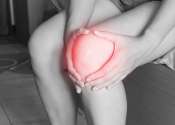Last update:
Sports medicine & Kinesiology news
Sports medicine & Kinesiology
Neither career length nor playing position predict long-term health in former NFL athletes, study finds
A UNC-Chapel Hill study conducted by the Matthew Gfellar Center studied more than 1,500 former NFL players found that two of the most commonly used ways to estimate head injury risk, years played and playing position, are ...
5 hours ago
0
0
Cardiology
Endurance athletes have a four times higher risk of irregular heartbeat, and this may be why
Exercise is one of the best things we can do for a healthy heart. Yet research shows that endurance athletes have up to a four times higher risk of atrial fibrillation (an irregular or fast heartbeat) than non-athletes. This ...
9 hours ago
0
0
The do's and don'ts of cold weather sports: A physical therapist offers advice
Winter sports are extreme by nature: Freezing temperatures, slick surfaces, whiteout conditions, and sharp blades can all make injury more likely.
10 hours ago
0
0

New tool can help concussion patients manage fear and improve recovery
Researchers from Edith Cowan University (ECU) have developed a new tool to evaluate fear avoidance behavior following a concussion.
17 hours ago
0
0

Walking to work can be faster—and healthier—than you think
A new proof-of-concept study from researchers at Bar-Ilan University reveals a surprising finding: incorporating more walking into public transportation commutes can improve health—without adding extra travel time.
Dec 3, 2025
0
0

Trying to move more? Expert explains the benefits of counting steps
Mackenzie Long, a personal trainer in physical therapy and sports medicine at the Mayo Clinic Health System in La Crosse and Onalaska, Wisconsin, explains the health benefits of tracking steps.
Dec 3, 2025
0
0

Study finds people on colchicine need less joint replacement
Gout is the most common form of inflammatory arthritis, with a worldwide prevalence of approximately 4%. The accumulation of monosodium urate crystals in gout leads to the clinical manifestations of the disease and, if left ...
Dec 2, 2025
0
0

Gender-specific supportive environment key to cutting female athletes' injury risks, new statement suggests
Creating a safe, gender-specific, supportive environment—one that is free of body shaming and idealized female forms, for example—is key to minimizing female athletes' future risks of injury and protecting their health, ...
Dec 2, 2025
0
0

Burden of arthritis, long-term back problems and osteoporosis in Western Australia projected in report
The number of people living with arthritis in Western Australia is projected to increase significantly by 2045, suggests a new Monash University led-report, in collaboration with Curtin University, Arthritis & Osteoporosis ...
Dec 2, 2025
0
0

More accessible urban parks linked with greater physical activity across US cities
The health benefits of nature are well-known, but its role in encouraging day-to-day physical activity across different regions and demographics has been less clear. This question carries new urgency as the world faces a ...
Dec 1, 2025
0
12

Relearning basic movements may ease chronic lower back pain, study finds
Millions of people struggle with lower back pain worldwide. Now, surprising new research from the University of South Australia shows that relearning 'baby' movements such as crawling, rolling and squatting could help reduce ...
Dec 1, 2025
0
2

How fast you can walk before hip surgery may determine how well you recover
Total hip arthroplasty (hip replacement) is a common treatment for hip osteoarthritis, a degenerative joint disease caused by cartilage in the hip joint wearing down. However, clinical outcomes vary between patients, and ...
Dec 1, 2025
0
1

MRI-based study finds gender gap in knee injuries
One of the largest MRI-based studies comparing knee injuries between men and women reveals surprising differences in injury patterns based on gender and age.
Nov 30, 2025
0
1

High-intensity training improves muscle function in inflammatory muscle disease, study suggests
High-intensity interval training boosts fitness and muscle endurance more effectively than traditional home exercise programs in people recently diagnosed with inflammatory muscle disease. That is the conclusion of a new ...
Nov 28, 2025
0
63

Inhibiting a master regulator of aging regenerates joint cartilage in mice
An injection that blocks the activity of a protein involved in aging reverses naturally occurring cartilage loss in the knee joints of old mice, a Stanford Medicine-led study has found. The treatment also prevented the development ...
Nov 27, 2025
0
186

Air pollution may reduce health benefits of exercise
Long-term exposure to toxic air can substantially weaken the health benefits of regular exercise, suggests a new study by an international team including UCL (University College London) researchers.
Nov 27, 2025
0
17

'Body-swap' robot helps reveal how the brain keeps us upright
What if a robot could show us how the brain keeps us balanced? UBC scientists built one—and their discovery could help shape new ways to reduce fall risk for millions of people.
Nov 26, 2025
0
11

Tai chi as good as talking therapy for managing chronic insomnia, finds study
Tai chi, a form of mind-body exercise widely practiced in Chinese communities, has similar benefits to talking therapy for middle aged and older people with chronic insomnia, finds a trial from Hong Kong published by The ...
Nov 26, 2025
0
0

Lower limb morphology in endurance runners reveals a human advantage
Humans are among the most capable long-distance runners in the animal kingdom. However, body shape and composition vary individually, reflecting adaptations to common movement patterns. In running, the extended lower limb ...
Nov 26, 2025
0
0

3D map sheds light on why tendons are prone to injury
Scientists at the University of Portsmouth have created the first detailed 3D map of how a crucial piece of connective tissue in our bodies responds to the stresses of movement and exercise. This tissue, called calcified ...
Nov 25, 2025
0
27

Most preschoolers failing to meet daily physical activity guidelines, study suggests
Fewer than 1 in 4 children aged 2 to 4 meet the recommended daily physical activity levels, a new study has found. Additionally, while children are much more active on days when they attend early years settings, most preschoolers ...
Nov 24, 2025
0
0

More muscle, less belly fat can slow brain aging
Researchers have found that a specific body profile—higher muscle mass combined with a lower visceral fat to muscle ratio—tracks with a younger brain age, according to a study being presented next week at the annual meeting ...
Nov 24, 2025
0
1

Macrophages can act like neurons for faster muscle injury repair, study finds
At the cellular level, the mechanics of how muscle tissue repair occurs gets complicated. There are significant differences between, say, tearing a muscle in a sports injury versus muscle tissue wasting away from diseases ...
Nov 21, 2025
0
42

Study shows too much sitting can harm balance and walking, even in young adults
A new study led by Clarkson University Assistant Professor of Physical Therapy Kwadwo Appiah-Kubi shows that too much sitting and too little physical activity can weaken balance and walking ability, even in healthy young ...
Nov 21, 2025
0
0

Exercising in mid and later life can reduce dementia risk, new study suggests
For years, scientists have known that moving our bodies can sharpen our minds. Physical activity boosts blood flow to the brain, enhances neuroplasticity and reduces chronic inflammation. These processes are believed to protect ...
Nov 20, 2025
0
2













































